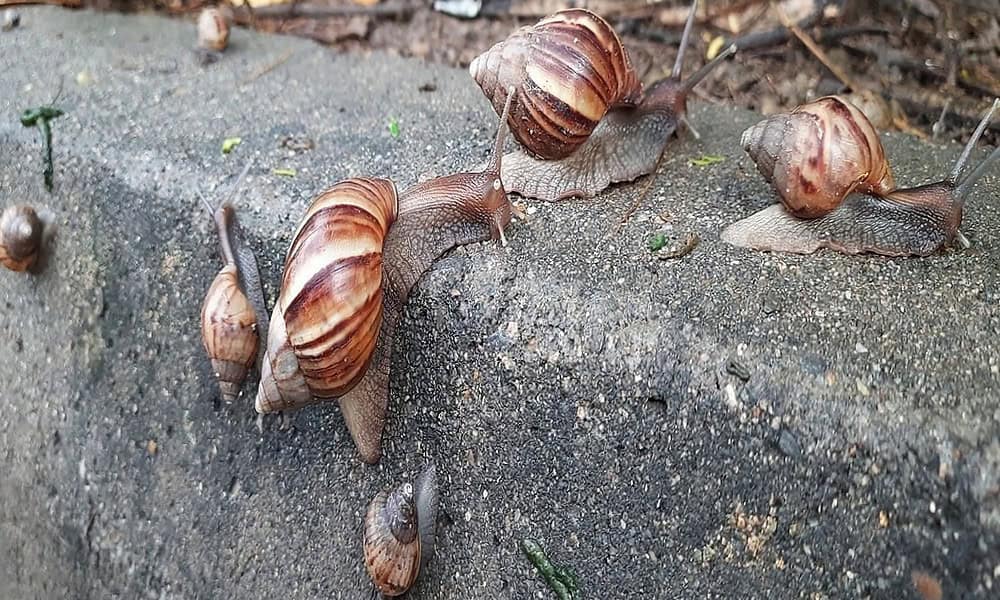Florida Department of Agriculture and Consumer Services (FDACS) has issued an alert regarding the presence of the African snail in Miramar, Broward County. This invasive mollusk has caused significant concerns, leading to the declaration of a quarantine and the implementation of eradication measures.
To combat the African snail, authorities have decided to use a molluscicide called metaldehyde. This chemical acts as bait for the snails and has been authorized by the United States Environmental Protection Agency. Metaldehyde is commonly used as a pesticide to control snails and slugs in various crops, including vegetables, ornamental plants, and fruit trees. It can be applied in the form of a spray, powder, or grains, and is poured into the soil surrounding plants and crops to protect them.
The quarantine zone encompasses the area from the intersection of Pembroke Road and South University Drive, extending south to NW 215th Street. It also includes the region from that area to SW 62nd Avenue, north to Pembroke Road, and west to its intersection with South University Drive.
Residents and the general public are reminded that it is strictly prohibited to transfer the African snail from the quarantine zone. Additionally, the movement of plants in soil, garden waste, rubble, compost, or construction materials is also restricted. These measures aim to prevent the further spread of this damaging subspecies, which poses a serious threat to plant life due to its large size and high reproductive rate.
Furthermore, it is crucial for individuals to avoid direct contact with these mollusks as they can transmit meningitis. The African snail has been a cause for concern in the past, with a similar alert being issued in Cuba. However, the snail’s proliferation continued, primarily due to religious practices. Currently, the official press no longer highlights the risks associated with the African snail, leaving many wondering about its current status.
The FDACS is actively working to eradicate the African snail from Miramar, Broward County, and urges the public to cooperate by adhering to the quarantine measures and reporting any sightings of these invasive mollusks.
How can residents report sightings of the African snail in the quarantine zone
Attention Miramar residents and Broward County locals! The Florida Department of Agriculture and Consumer Services (FDACS) has issued a red alert regarding the African snail invasion in your area. This invasive species is causing major concerns, leading to a quarantine declaration and urgent eradication efforts.
In order to tackle this snail menace, authorities have decided to deploy a powerful molluscicide called metaldehyde. Don’t worry, this chemical has been approved by the United States Environmental Protection Agency and is commonly used as a pesticide to control snails and slugs in various crops. Metaldehyde acts as bait for the snails and can be applied in different forms, such as spray, powder, or grains. It’s poured into the soil surrounding plants and crops to shield them from these pesky invaders.
So, where exactly is the quarantine zone? It stretches from the intersection of Pembroke Road and South University Drive all the way south to NW 215th Street. Additionally, the region includes the area from that point to SW 62nd Avenue, north to Pembroke Road, and west to its intersection with South University Drive.
Listen up now, it’s crucial that we all play our part in preventing the further spread of the African snail. Remember, it’s absolutely forbidden to transfer these snails from the quarantine zone. Also, the movement of plants in soil, garden waste, rubble, compost, or construction materials is strictly restricted. These precautions are necessary because this subspecies poses a genuine threat to plant life due to its sheer size and rapid reproduction rate.
But that’s not all we need to be cautious about–these particular mollusks can actually transmit meningitis, so it’s vital that we avoid direct contact with them at all costs. Surprisingly, this isn’t the first time the African snail has caused a stir. A similar alert was even issued in Cuba, but unfortunately, the snails continued to spread, mainly due to religious practices. Nowadays, the official press doesn’t highlight the risks associated with the African snail, which has left many wondering what its current status is.
Not to worry, though! The FDACS is actively working to eradicate the African snail from Miramar and Broward County. They are counting on our cooperation, so let’s follow the quarantine measures and promptly report any sightings of these invasive mollusks. Together, we can put an end to this snail invasion and protect our precious plant life!


Yikes! A concerning article highlighting the potential dangers posed by the African snail infestation in certain parts of Florida. Time for quick and effective action to prevent further spread and protect our native ecosystems.